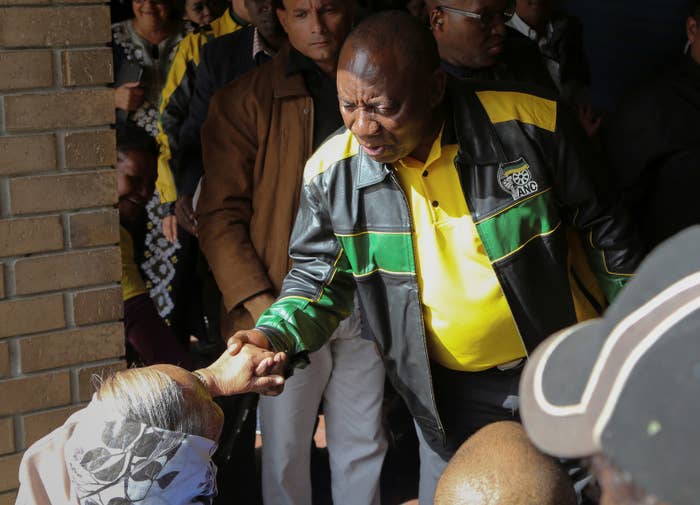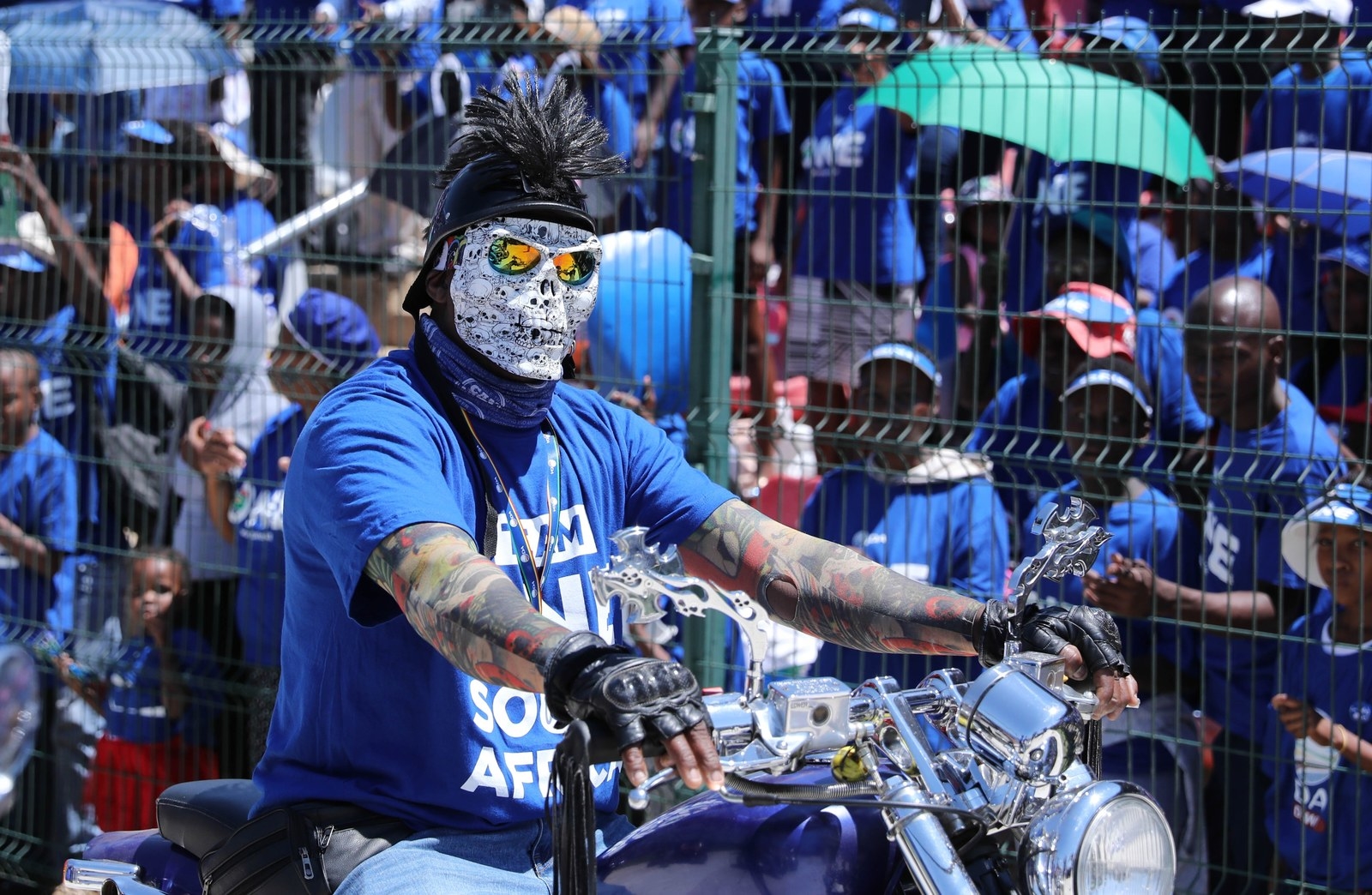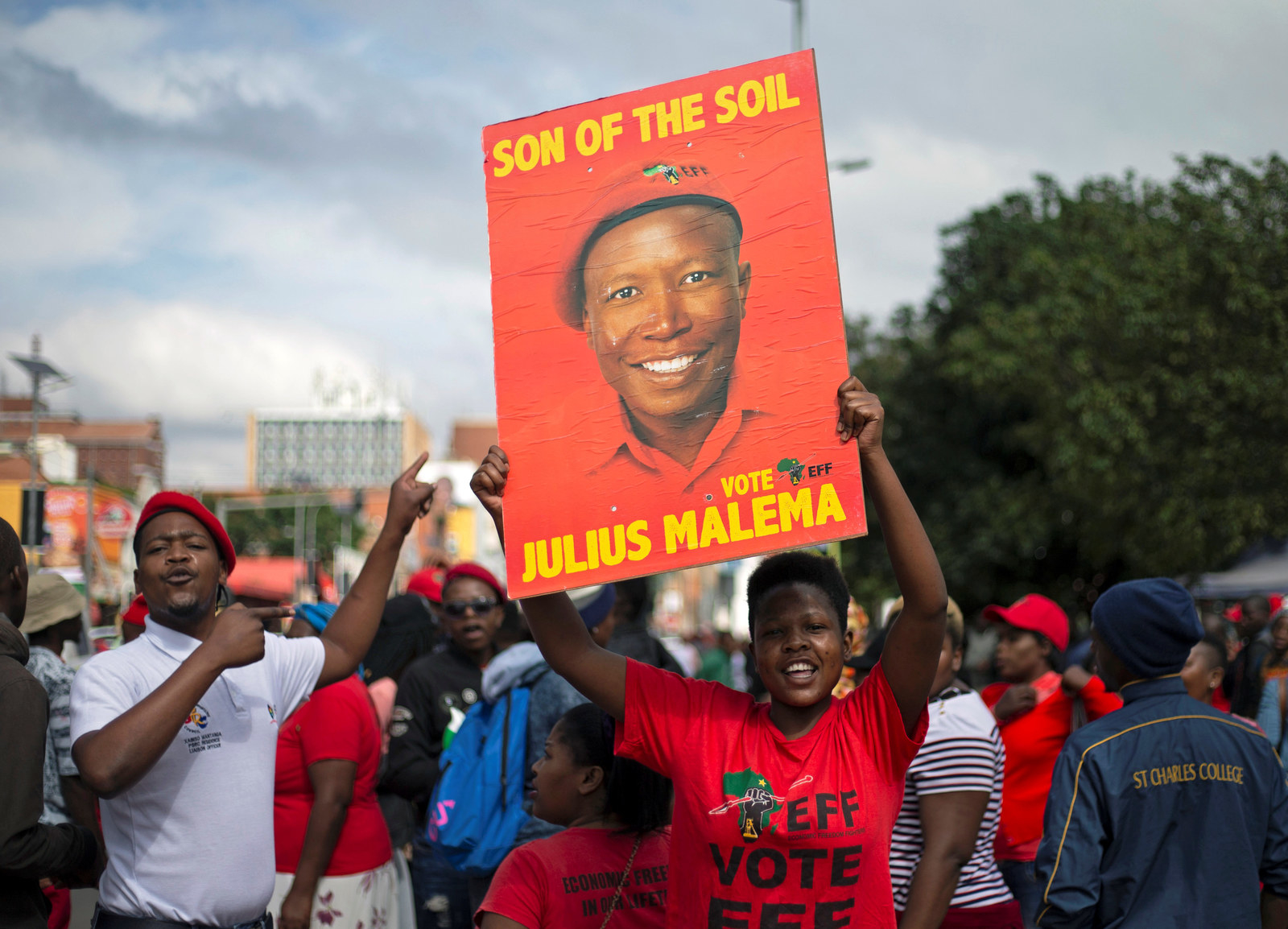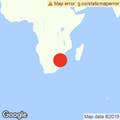
DURBAN, South Africa — The health minister claims they crowd hospitals. The largest opposition party promises to secure the borders against them. Police stop them at random, demanding to see their IDs. And sometimes their own neighbors violently turn against them, looting their shops, stabbing them in the street, and even burning them alive.
African nationals living in South Africa — whether as undocumented migrants, asylum-seekers, refugees, or citizens — have long struggled for full inclusion in society. But advocates say that their situation has worsened as elections approach and that the rise of global nationalism, particularly in the US from President Donald Trump, is to blame.
South Africans will cast their votes on May 8 in the first election since a massive corruption scandal took down the country’s last elected president, Jacob Zuma. Immigrant rights advocates worry not only that politicians will continue to use Africans as scapegoats but that the acts of violence committed against them will get worse in the so-called Rainbow Nation.
Vusumuzi Sibanda is chairperson of the African Diaspora Forum, an organization that combats xenophobia by acting as a watchdog whenever public figures make anti-immigrant statements and by fostering dialogue between South Africans and other African nationals. Sibanda, a Zimbabwean who has been living in South Africa for the past 19 years, told BuzzFeed News from his office in downtown Johannesburg that he believes South African politicians have been influenced by the growth of nationalist politics around the world, especially in countries like the US and the UK.
This populist mentality, combined with South African politicians’ refusal to take responsibility for failing public services, has made the African immigrant community the target for all the country’s ills, he added. Just as Trump’s immigration policies have demonized people not born in the US under the guise of protecting Americans and giving them better opportunities, South African political parties are capitalizing on the chance to promote similar policies at the expense of Africans who weren’t born in South Africa.
During the launch of the ruling African National Congress (ANC) party’s manifesto in Durban — a city on the eastern coast of South Africa — in January, President Cyril Ramaphosa talked about the importance of “effective border management” in order to ensure public safety, and promised to come down harder on illegal trading and the selling of counterfeit products, the latter of which is a commonly held perception about undocumented African migrants.

Two months later, two separate attacks on African migrants took place in Durban. At least six people were killed, and another 150 were forced to flee their homes until the violence subsided. Human Rights Watch and the African Diaspora Forum condemned the xenophobic attacks and argued that they were a direct result of Ramaphosa’s comments.
But throughout this campaign season, the Democratic Alliance (DA) political party — the official opposition party, with 89 of 400 seats in Parliament — has been the most vocal when it comes to taking a hard stance on immigration. Its posters promising to “Secure Our Borders” are seen throughout Johannesburg, and the current mayor, DA member Herman Mashaba, is notorious for the anti-immigrant statements he’s made in the past. In November, in an exchange on Twitter with someone over the potential risks of selling meat in the city, he wrote, “We are going to sit back and allow people like you to bring us Ebolas in the name of small business. Health of our people first. Our health facilities are already stretched to the limit.”
We are going to sit back and allow people like you to bring us Ebolas in the name of small business. Health of our people first. Our health facilities are already stretched to the limit https://t.co/rbPFqlpy1K
After his comments provoked a backlash, Mashaba apologized the next day.
“The DA says they want the borders to be tight because they’re porous right now, but what are they thinking? Of building a wall? Putting an army at the borders? The US was at a standstill in January because of the money it would take to build a wall, so what can South Africa do?” African Diaspora Forum’s Sibanda asked, referencing the 35-day US government shutdown that resulted from Congress's inability to agree on whether or not to fund a $5 billion wall along the US–Mexico border.
Conversations around African migration focus on those who embark on the treacherous journey from North Africa across the Mediterranean Sea and into Europe. But the truth is, there is significantly more movement that happens within the continent than outside of it. And South Africa has historically been one of the bigger recipients of foreign nationals, beginning in the late 19th century, when people from Mozambique, Botswana, Lesotho, Swaziland, Angola, Zambia, and Tanzania came to the country seeking work as miners shortly after Dutch settlers discovered, and then exploited, gold there.
Like black South Africans, these migrants were also later forced into townships and bore the brunt of a violent apartheid regime that lasted half a century. More recently, political and economic instability and civil wars in countries as close as Swaziland (which is located inside South Africa, along with Lesotho) and as far away as Ethiopia caused citizens to flee in search of a better life — and for many of them, South Africa was the destination of choice. The multiculturalism that resulted from communities representing every region on the continent — along with those from Asia and Europe — led former South African president Nelson Mandela, echoing the words of Archbishop Desmond Tutu, to name the country the Rainbow Nation in a speech after the abolishment of apartheid.
Similar to the US paradox of the “melting pot,” South Africa’s history is interwoven with migration and multiculturalism, yet it still struggles to ensure equality not only among its own citizens but also for the immigrants who literally built the country. The reactions to and treatment of African newcomers have grown increasingly antagonistic in recent years and have gotten markedly worse during election season.
One of the biggest challenges African migrants face in seeking justice for mistreatment by South Africans is law enforcement itself. Migrants and human rights groups have reported instances of officers simply looking on while foreigners were being assaulted in the streets. And the hope for protection shrinks even further when authorities publicly express their own feelings toward other African nationals.
In July 2017, Deputy Police Minister Bongani Mkongi claimed, without evidence, that foreigners made up 80% of the population in a Johannesburg neighborhood of Hillbrow, known for its high crime rates, and that South Africans were surrendering their land to them. But the most recent census data is from 2011 and provided only gender, race, and language statistics for Hillbrow. In addition, a provincial survey from 2016 gave the numbers only for foreign nationals in Johannesburg. While African migrants made up 80% of all foreigners in the city at that time, they made up only about 14% of the total city population.
In November, South African Health Minister Aaron Motsoaledi said during a nurses summit that foreign nationals were overcrowding hospitals. His statement was proved false, but Sibanda said comments like that from officials fuel the dangerous stereotype that immigrants drain the country’s resources, and effectively put them more at risk for violence.
“The government knows people are frustrated,” Sibanda said. “Clinics are known for opening late and closing early, and employees take two-hour lunch breaks. It’s hard to get seen when you go in.”

Rather than address those issues, Sibanda added, officials blame foreigners, not only for taking space away from South Africans in public hospitals but also for the trash that spills into the streets of Johannesburg townships, the rise in crime, and the lack of jobs — despite evidence showing that immigrants actually boost employment rates and economic growth in the country.
But this blame is not meted out to all of South Africa’s immigrant groups; it’s aimed directly at people from other African countries, not those who come from Europe, Asia, or North or South America. Because of this, many people reject the use of the term “xenophobia” in favor of a more specific one to describe the situation in South Africa: “Afrophobia,” the fear of other Africans.
Daniel Dunia, a Congolese refugee who’s lived in South Africa for 13 years, has experienced the discrimination and violence directed at African nationals in his personal and professional lives. As secretary-general for the nonprofit Africa Solidarity Network, the 44-year-old facilitates conversations between South Africans and African immigrants in order to debunk stereotypes and build peaceful relations among them.
As a foreign national himself, Dunia has lived through the violence perpetrated by South Africans against immigrants. He told BuzzFeed News over coffee in downtown Durban that in 2015, local South Africans led an attack on him and thousands of other African immigrants in their neighborhood, a town called Isipingo. At least seven people were killed; Dunia said that some were thrown inside a stack of tires and burned alive — a replication of the “necklacing” tactic employed by some ANC supporters against suspected traitors in the struggle for freedom during apartheid — and dozens had their shops and homes broken into and looted. Dunia, his wife, and their three children fled their home and lost all of their most valuable possessions. They, and about 5,000 others between March and May that year, were displaced and made to live in what essentially amounted to refugee camps built by the government. Dunia and his family, who came to South Africa seeking asylum from the war in Congo, lived in the camp for six months before returning to Isipingo.
Dunia said that since the 2015 attacks, a lot of progress has been made in Isipingo to mend the relationship between native South Africans and African immigrants, but ultimately, he doesn’t expect significant change to happen in the country until the government actually acknowledges xenophobia.
“Action only happens when there’s been an attack, or if someone has been killed,” he said. “The government is in denial. They don’t want to project a negative image of the country.”
The violence that foreign nationals face from South Africans comes specifically from black South Africans, according to Dunia. When asked whether he believed this was because black South Africans are disproportionately affected by high rates of crime and unemployment, which could make them feel even more animosity toward other black Africans whom they perceive as having “made it,” Dunia said that didn’t add up.
“I don’t think they’re attacking us because they’re poor,” he said. “If someone has taken your privilege, you should be attacking them. If that were true, they would be attacking white South Africans, not the people who came to this country with less privilege than them.”
And the negative sentiment toward foreigners goes beyond a person’s ID card. Sometimes foreign nationals who gain South African citizenship still deal with discrimination because they weren’t born in South Africa.

Somali businessman Ahmed Mohamed came to South Africa in 2001, seeking asylum. He was granted refugee status, eventually became a citizen (which refugees can do after 10 years), and has lived in the country ever since. Four of his six children have never even been to Somalia.
But Mohamed told BuzzFeed News from his office in the wholesale warehouse he owns that while he now has the same green ID card that all other South African citizens have, he is still seen as and treated like a foreigner.
“I’m a South African citizen, but I’m not welcome here,” said Mohamed. “Practically, I’m Somali, and that’s the problem. I go to public institutions and they won’t turn me away, but the stigma of being a foreigner is still there. I can still feel it.”
Like Dunia, Mohamed was also targeted in the 2015 attacks. Five of the small shops he owned were destroyed. Just before speaking to BuzzFeed News, he held a meeting with some of his employees to discuss how to respond to threats that one of them had received in a nearby neighborhood.
There are a few parties that have publicly defended African immigrants and advocated for better treatment of them — namely, the Economic Freedom Party, known for its pro-black stance on political issues — but Sibanda has no real hope that the situation African immigrants face will improve anytime soon. And while the EFF is supported by members of the African foreign national community, it has routinely come under fire for issues ranging from allegations of members abusing women in the party to controversial statements about killing white Afrikaners.
“As long as South Africa trails ahead of other countries in terms of development, there will continue to be problems,” Sibanda said. “People will want to come to a country where the standard of living is better. The government needs to recognize that.”●

